Pancreatic Enzymes And Digestion
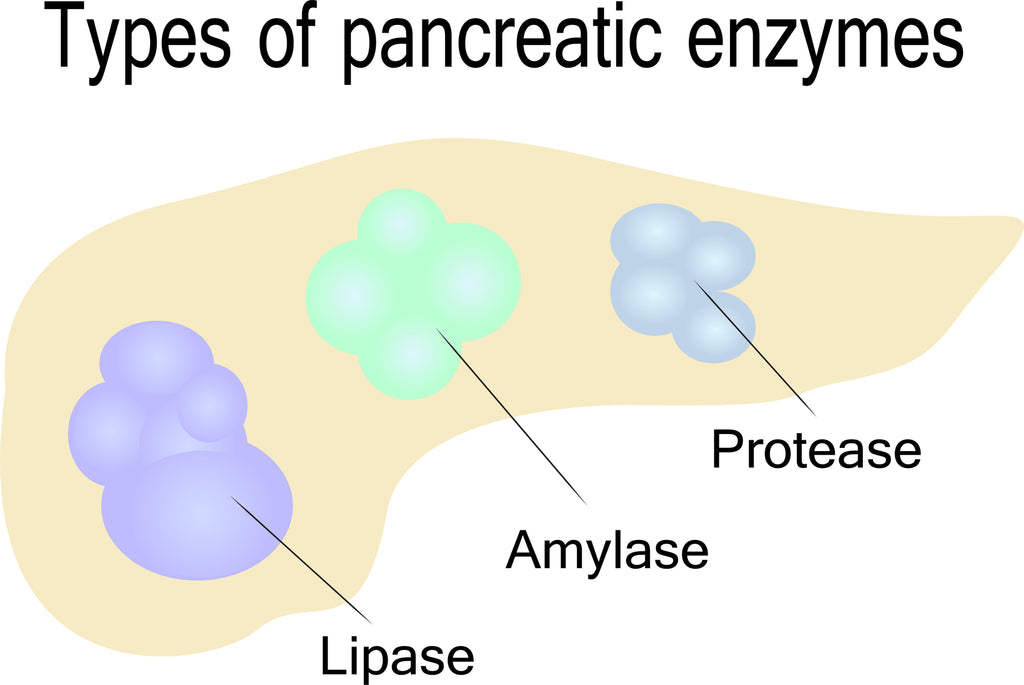
I’m sure everyone has a basic idea of how digestion works. We eat food, we start the digestion process by chewing that food, the food travels down the esophagus to the stomach, where stomach acid breaks it down further. From there the food travels through the intestines, and somewhere along the way energy and nutrients are extracted from the food. After that happens, the waste products are excreted as urine and feces. While this very basic description is accurate, it’s by no means complete. To start with, it leaves out the role that other organs, such as the liver, pancreas, gallbladder, and kidneys play in the extraction of nutrients, in the metabolic system, and in eliminating waste. It also doesn’t tell us much about HOW we extract nutrients from our food, and how the waste products are broken down- or what happens if any of these systems get out of whack.
Today, I want to focus on the role of enzymes in the process of digestion, the breakdown of foods, and nutrient extraction. Specifically, we’ll look at the role that pancreatic enzymes play in this process, why it’s important to maintain your pancreatic enzymes, what happens if you have pancreatic insufficiency, and what to do about it. So what are enzymes? Enzymes are biological catalysts that speed up chemical reactions in the body. They are mostly proteins, and each enzyme has a specific function. For example, when we eat food, enzymes help break it down into smaller parts our body can use. Enzymes work by lowering the threshold necessary to start the intended reaction. They do this by binding to another substance known as a substrate. Without enzymes, these processes would happen much too slowly for the nutritive values of foods to be absorbed by the body. The key to understanding enzymes is that they use a biological process to quickly break down particles into smaller particles, and different enzymes break down different types of particles. You’ve probably seen this in action yourself outside of the body when you’ve various cleaning products. Many cleaning products such as laundry detergents, dishwashing liquids, and other products mimic the processes in the body by harnessing the power of enzymes to break down foods and stains.
There are many enzymes in the body that aid in the process of digestion, starting with the enzyme amylase, which is found in the saliva and begins the process of digestion by breaking down the starches that eat into sugars, which the body can more readily absorb. This is one of the reasons that carb-heavy snacking can cause tooth decay. After food leaves the mouth, it encounters further enzymes in the stomach, pepsin, which helps break down (digest) proteins in order to extract their energy. After foods leave the stomach, they travel to the duodenum, which is the upper part of the intestines where the pancreas supplies enzymes to further break down foods.
These pancreatic enzymes that are supplied to the intestines are enzymes that break down sugars, fats, and starches. The pancreatic enzymes that aid with digestion are:
1) Lipase, which works with bile supplied by the gallbladder to break down fat in your diet.
2) Protease, which further breaks down proteins in your diet.
3)Amylase, which helps further break down starches into sugar.
Without a well-functioning pancreas that produces enough of these enzymes, you risk improper digestion of foods, with different impacts on the body depending on which enzymes you aren’t getting enough of. Not enough protein means that you might be anemic, weak, and unable to build muscle mass. Too little fat absorbed can also affect muscle mass since a certain amount of fats are necessary to utilize that protein. Disruption in fat absorption also means we might be deficient in fat-soluble vitamins like vitamins A, D, E, and K. “Classical deficiencies of these vitamins can manifest clinically as night blindness (vitamin A), osteomalacia (vitamin D), increased oxidative cell stress (vitamin E) and hemorrhage (vitamin K).” (Albahrani and Greaves, Clinical Biochemical Review, 2016). Too much fat left in the gut also can cause intestinal discomfort, and smelly, greasy stools. An incomplete breakdown of starches into sugars means that you may have lower amylase levels. Lower amylase levels might be linked to insulin resistance.
In addition to these issues, the incomplete breakdown of food particles may increase your chances of gut irritation, the weakening of the tight junctions between cells that line the intestinal wall, the increased production of zonulin, and therefore the risk of not only inflammation in the gut, but chronic inflammation in other parts of the body as well. This could be the source of many diseases, including many autoimmune conditions.
Severe lack of these enzymes means that you’ll likely be diagnosed with a pancreatic issue. Pancreatic insufficiency can come about from a number of factors, including disease, diet, and drinking. If severe pancreatic insufficiency is diagnosed, you’ll likely be recommended pancreatic enzyme replacement therapy (PERT) and lifestyle changes. PERT involves taking pills that contain pancreatic enzymes. PERT can improve your symptoms and help you get enough nutrients from what you eat and drink. Even if you don’t have a critical lack of pancreatic enzymes, but you have some of the symptoms of partial digestion or are in a risk group, you might consider supplementing with natural pancreatic enzymes.
- Robert Thomas

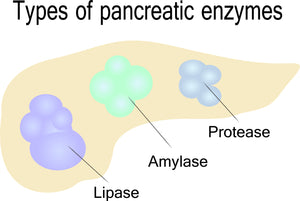

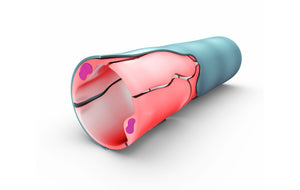
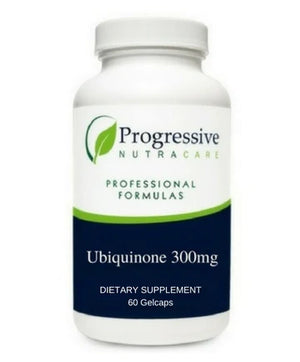

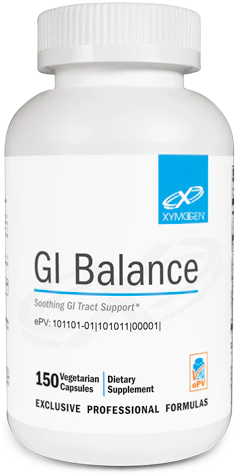
Comments 0